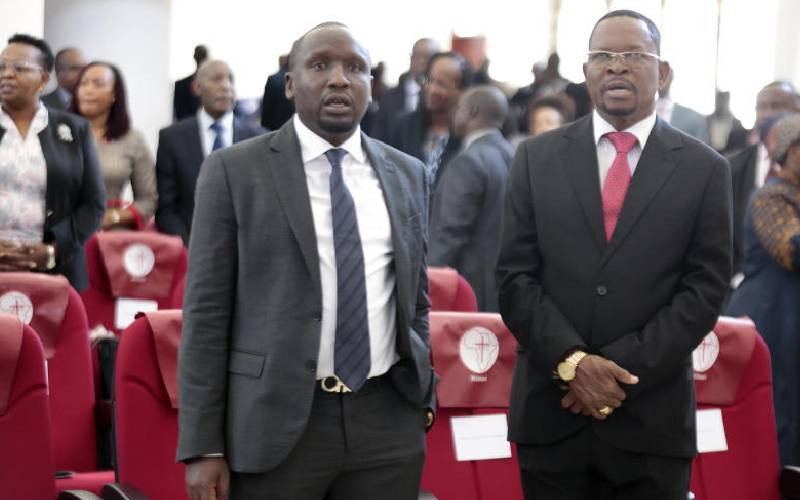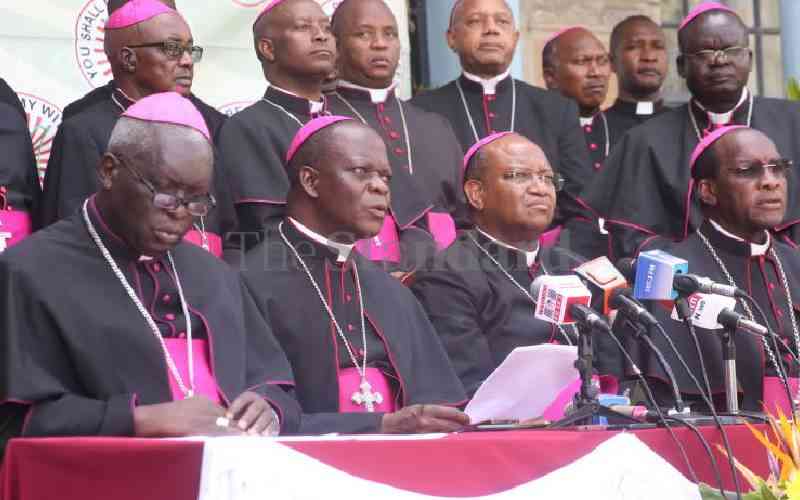The Senate is pursuing a bipartisan constitutional amendment push that would give it more say in budget-making and vetting nominees to senior state jobs, among other radical changes.
This is through the Constitution of Kenya (Amendment) Bill, 2025, which proposes changes to 25 articles of the Constitution, which, if passed, would elevate the Senate to a de facto upper house.
The proposals would trigger a referendum, as they affect the functions of Parliament. Both the majority and minority parties propose that the changes take effect 14 days after the referendum.
A key proposal of the bill, fronted by Majority Leader Aaron Cheruiyot and Minority Leader Stewart Madzayo, would see both houses of Parliament consider allocation bills (County Allocation of Revenue Bill and County Governments Additional Bill) and the Appropriations Bill – the budget.
Supplementary allocations will also need the nod of both houses if amendments to Articles 111 and 112, which also touch on other allocation bills, are to be passed.
Currently, only the National Assembly considers the budget, a situation that many observers have faulted as violating the Constitution, which dictates that Parliament carries out the critical annual process.
The majority and minority parties in the Senate want Article 111 of the Constitution, which provides for the procedure of the consideration of special bills concerning county governments, repealed and replaced with new clauses that would enable either house to “propose and pass amendments to fiscal Bills.”
“The proposed amendment explicitly confers legislative authority over financial legislation to both Houses, correcting the current position where financial legislation is only considered in the National Assembly under the provisions of Articles 109 and 114,” a summary of the bill, drafted by its sponsors, reads in part. “It also recognises that allocation Bills (which affect counties) are best handled by the Senate, while appropriation Bills remain under the National Assembly’s purview.”
While both houses must pass a bill to have it presented to the President for consent, the house that originates allocation or appropriation bills can veto amendments made by the other in a resolution supported by two-thirds of its members.
As a move seeking to enhance the Senate’s legislative input, an amendment targeting Article 109 of the Constitution proposes a provision in which any house may originate any bills, except those raising national revenue, which shall be reserved for the National Assembly.
“When a Bill has been passed by one House of Parliament, the Speaker of that House shall refer it to the Speaker of the other House for introduction, consideration and passage,” Clause 4 of the said article would read if the proposed amendment is adopted.
Other amendments target the vetting and approval of nominees to state offices, which also accord the Senate the chance to participate in removing holders of members of independent bodies from office, a job currently reserved for the Senate.
Such entities include the Auditor General, the Controller of Budget, the Office of the Director of Public Prosecutions Public Service Commission and the Commission on Revenue Allocation.
The argument is that the Senate does not participate in the recruitment of members in charge of bodies that should be overseen by Parliament as a whole.
The sponsors of the bill also want to establish a County Assembly Fund to extricate county assemblies from depending on county governments, a move the pair argue will enhance oversight.
Stay informed. Subscribe to our newsletter
The Fund is essentially an account for county assemblies. Currently, county assemblies depend on allocations from the respective devolved governments.
“Each financial year, a county assembly shall prepare estimates of expenditure for the following year and submit them to the county assembly for approval,” the proposed amendment to Article 199 of the Constitution reads in part.
The bill also proposes to have the Senate represent special interest groups “in addition to county governments”, citing the house’s role as a “protector of marginalised persons, including women, persons with disabilities, youth and minority groups.”
It also seeks to establish the leadership hierarchy in the Senate, recognising the majority and minority leaders.

























